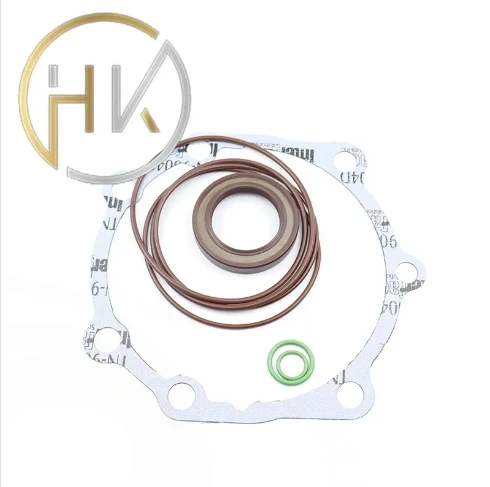Dec . 11, 2024 09:53 Back to list
Understanding Motor Seals and Their Importance in Mechanical Applications
Understanding Motor Seals Their Importance and Functionality
Motor seals play a crucial role in the efficiency and longevity of various machines, particularly in engines, pumps, and other mechanical devices. These components serve as barriers that prevent the leakage of fluids and gases, ensuring that the internal systems of machines operate smoothly without loss of performance. In this article, we will explore the types, functions, materials, and maintenance of motor seals, highlighting their paramount importance in the mechanical industry.
What Are Motor Seals?
Motor seals, often referred to as shaft seals or oil seals, are essential components that encircle rotating shafts in machinery. Their primary function is to retain lubricant within the system while preventing contaminants from entering. This dual-purpose role significantly contributes to the overall efficiency, reliability, and safety of mechanical devices.
Types of Motor Seals
There are several types of motor seals, each designed for specific applications and operating conditions. The most common types include
1. Radial Shaft Seals Typically found in rotating equipment, these seals are designed to contain liquids and prevent air contamination. They are widely used in automotive engines, gearboxes, and other applications where rotating shafts are prevalent.
2. Lip Seals These seals feature a flexible lip that creates a tight seal against the shaft. Lip seals are frequently used in hydraulic systems, where they help maintain pressure.
3. Mechanical Seals Often utilized in pumps and other equipment that handle fluids, mechanical seals consist of rotating and stationary components that form a seal. They are effective in high-pressure environments and minimize leakage.
4. O-Rings Though simpler, O-rings are circular seals used to prevent the passage of fluids and gases. They are versatile and can be used in numerous applications, from automotive to industrial equipment.
Materials Used in Motor Seals
The materials used in the manufacturing of motor seals are crucial to their performance and longevity. Common materials include
motor seal

- Rubber Natural and synthetic rubbers, such as nitrile and fluorocarbon, are widely used due to their excellent flexibility and resistance to various chemicals.
- Polyurethane Known for its durability and resistance to wear and tear, polyurethane seals are ideal for demanding applications.
- Metal In some cases, metal components are used in conjunction with rubber to enhance strength and stability, especially in high-temperature environments.
Importance of Proper Maintenance
Like all mechanical components, motor seals require regular maintenance to ensure optimal performance. Over time, seals can wear out due to exposure to harsh conditions, temperature fluctuations, and mechanical stress. Signs that a seal may need replacement include oil leaks, decreased performance, and unusual noises from the machine.
To maintain motor seals effectively, it is essential to
1. Regularly Inspect Routine checks can identify early signs of wear and prevent more significant issues down the line.
2. Keep Clean Ensure that the area around the seal is clean and free from debris, which can cause damage.
3. Monitor Operating Conditions Being aware of the temperature and pressure conditions under which a machine operates can help in selecting the appropriate seals and predicting their lifespan.
4. Replace When Necessary Promptly addressing any signs of wear can save time and costs associated with more extensive repairs.
Conclusion
Motor seals are vital components that significantly contribute to the efficiency and longevity of machinery. Understanding their types, materials, and maintenance needs is essential for anyone involved in the mechanical industry. By investing time in the care and upkeep of motor seals, manufacturers and technicians can ensure smoother operations, reduce costs, and enhance safety in industrial environments. The importance of these seemingly small components cannot be overstated, as they play a big role in the intricate workings of machinery across various sectors.
-
TCN Oil Seal Metal Ring Reinforcement for Heavy Machinery
NewsJul.25,2025
-
Rotary Lip Seal Spring-Loaded Design for High-Speed Applications
NewsJul.25,2025
-
Hydraulic Cylinder Seals Polyurethane Material for High-Impact Jobs
NewsJul.25,2025
-
High Pressure Oil Seal Polyurethane Coating Wear Resistance
NewsJul.25,2025
-
Dust Proof Seal Double Lip Design for Construction Equipment
NewsJul.25,2025
-
Hub Seal Polyurethane Wear Resistance in Agricultural Vehicles
NewsJul.25,2025
-
The Trans-formative Journey of Wheel Hub Oil Seals
NewsJun.06,2025
Products categories
















